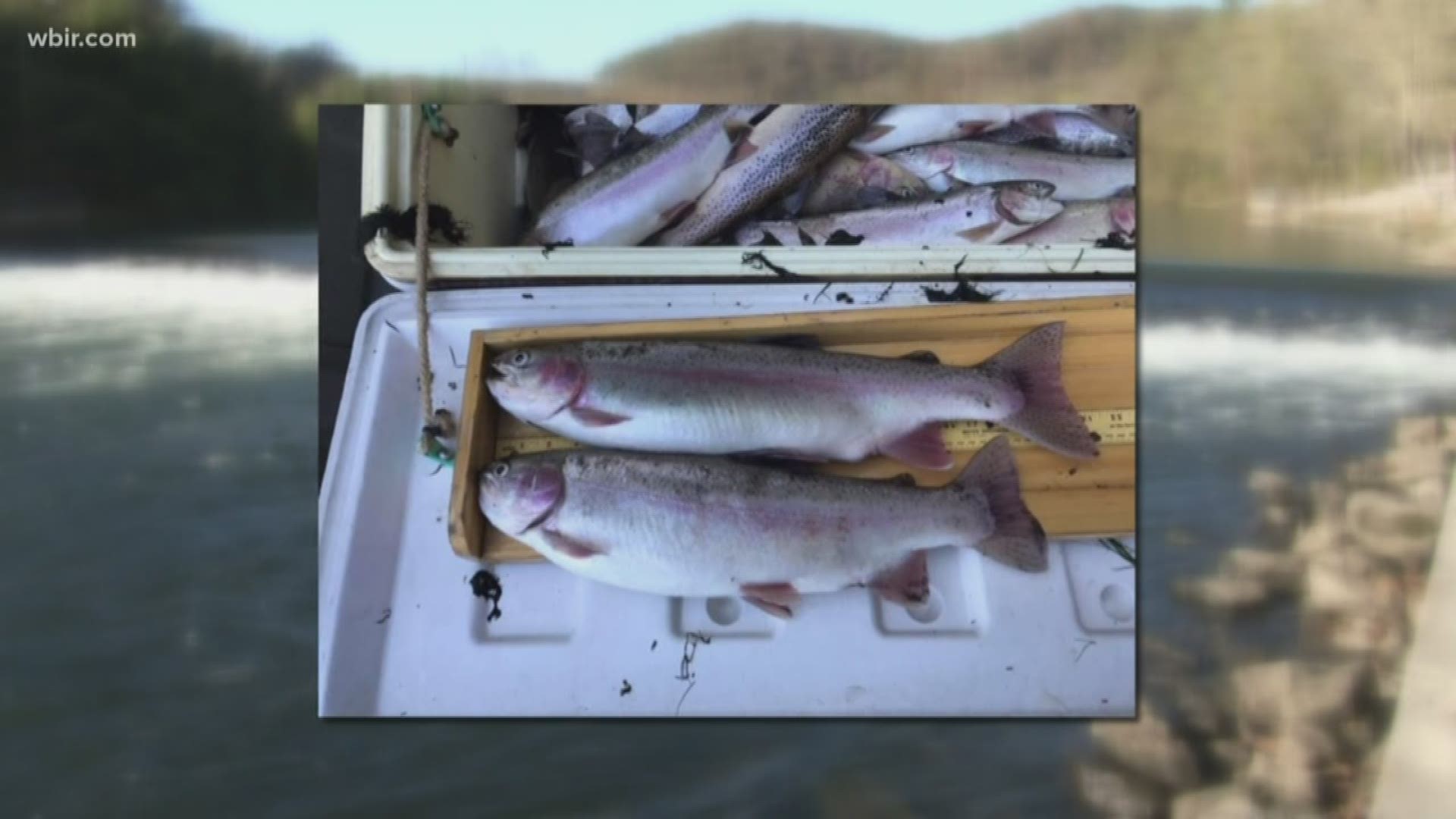Nearly 120 trout died suddenly overnight due to Halloween's severe weather and rapid shift in temperatures.
It happened at the Weir Dam on the Clinch River.
Matt Cameron with the Tennessee Wildlife Resources Agency said wildlife officers collected 119 dead brown and rainbow trout from the kill site. Officers took the fish across the river and buried them in accordance with agency directives.
Downstream at Clear Creek, the TWRA said they saw a large number of trout stacked up because the dissolved oxygen content there was above 10.
Cameron said biologists came to investigate, saying fish kills like these are unavoidable and naturally happen yearly each fall in what's known as 'lake turnover' that causes oxygen levels to dip, killing fish unable to escape to breathable waters.
"When that cold front came through yesterday, those strong straight line winds caused the warm oxygenated surface water to circulate to the bottom," Cameron said. "When that low oxygenated water is generated through the dam, it causes a fish kill in the river below."
But now with those bigger trout gone, fishing guides like Mike Bone may have to re-navigate future fishing trips.
Bone said the section of the Clinch River near Weir Dam is usually a prime spot to fish this time of year.
"Some of the larger fish move up the river in anticipation of spawn," Bone explained.
Bone took a fishing group out on the Clinch Friday morning. He said he and a woman passenger started noticing multiple dead fish floating.
"We probably saw in about a mile stretch of river or a little less we probably saw 15 larger fish," Bone said, referring to the dead fish in the water.
He said that was the first time he's seen anything like that in his 25 year fishing career.
"But usually it's only one or two, you know just seeing one dead fish doesn't concern you a whole lot but when you start seeing a big number in a small area that's a different, there's something else causing it," Bone noted.
TDEC and TVA say when colder winds moved in overnight, it caused the colder, less-oxygenated water on the bottom of the river to circulate to the top.
"They're very sensitive to environmental and pollution and oxygen, you know dissolved oxygen and things like that really affect trout," Bone explained. "They're not as hearty as some of the other fish are."
TVA's biologists say they are fairly confident that this kill is just a temperature change and that the Weir Dam makes the problem worse by mixing the water up.
Bone said less spawning-sized fish mean he'll be showing the rest of the river some love for now.
"There's 13 miles of river you know from here, so yeah we'll definitely be fishing, just not here, not this section," Bone laughed.
Since the discovery Friday, Cameron said TVA has decided to stop generation and pulse the river two times per day. They say this will allow the area to recover faster with better temperatures and dissolved oxygen levels.

